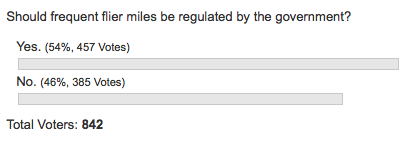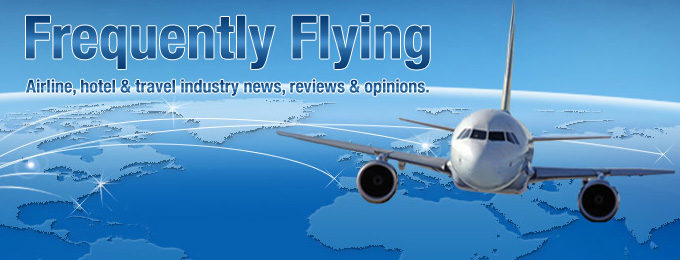A couple of articles caught my attention this week about the difficulty some travelers have redeeming frequent flier miles.
The first is from the Daily Mail, and setting my opinion of the publication itself aside, I read through the article. About 1,000 British fliers were surveyed and asked about their participation in an airline’s frequent flier program. Among the results:
- Almost half never redeem their miles because the terms and conditions are too restrictive.
- Sixty percent of people think they need to take too many flights before they can claim rewards.
- About 40 percent of people who collect air miles ever redeem them.
- Only 23 percent of those surveyed said they collect airline loyalty points.
These findings shocked me until I stepped back from my far-too-intimate knowledge and personal experience with travel loyalty programs. It is fair to say that the average traveler has difficulty redeeming miles, and I understand their frustrations.
The nuances of an individual program can be mind-boggling and do (mostly) require an in-depth knowledge in order to yield desirable results when it comes time to redeem for a reward. That’s part of the reason why so many bloggers/experts offer award booking services.
But Should the Programs Be Regulated?
The other article I read sort of punctuates the results of that study’s findings, and comes from Christopher Elliott. He writes about a traveler who had a very difficult time trying to redeem her United Airlines MileagePlus miles for a flight (or even hotel or car redemption, which is a story in and of itself – even I didn’t know you had to be an elite or Chase cardholder for a hotel or car award).
Beyond discussing her particular case, he asks the question, “Should frequent flier miles be regulated by the government?†The basis of him posing the question is related to the so-called “promise†for free flights membership in a frequent flier program bestows. And while the perception might be there that airlines “promise†free flights, the reality is that they have no obligation to honor anything. The MileagePlus program rules, for example, state:
MileagePlus membership and benefits, including the Premier Program, are offered at the discretion of United Airlines and its affiliates, and United has the right to terminate the Program and/or the Premier Program or to change the Program Rules, regulations, benefits, conditions of participation or mileage levels, in whole or in part, at any time, with or without notice, even though changes may affect the value of the mileage or certificates already accumulated.
There’s certainly no promise there. Yeah, I know, most people don’t read the T&Cs of just about anything, but calling for regulation of FFPs is just ridiculous in my mind. As of earlier today, though, only 46 percent of his poll agrees with me:
 I dare to say the majority of you reading this are pretty savvy when it comes to understanding the programs and how to maximize their value. How would/did you vote that poll?
I dare to say the majority of you reading this are pretty savvy when it comes to understanding the programs and how to maximize their value. How would/did you vote that poll?
– Follow Darren Booth on Twitter, @FrequentlyFlyin, for more airline, hotel and travel industry news, reviews and opinions.
Related posts:
How to Get Your Airline Friends and Family Fired
Are Airline Change Fees and Cancellation Penalties Fair?
The Reality Check That Is United Airlines Global First Class


Sorry, but Elliott is so insufferable. A great majority of the “problems” he addresses on his website involve consumers who haven’t bothered to educate themselves about the terms, conditions, or rules of a specific program or event, and then come crawling back to complain about how “unfair” said program is. It’s ridiculous.
Granted, there are a few diamonds in the rough over there, and he does help answer some tricky customer service questions questions. But, unfortunately, the bulk of his content seems to benefit whiny people who deserve nothing except a lesson on being a savvier customer.
I’d vote NO. The main reason most people travel is to get to a destination, not to collect miles. 😉
No it isn’t. And it isn’t the government’s place to regulate what people can do with United’s miles.
@NotImpressed: Very well put about Chris Elliott’s good and not-so-good content.
The main point is that few people really collect and use their miles, this allows airlines to give some value to those collecting without incurring costs of all people redeeming.
I agree that the airlines are making it too hard to redeem miles. To say that too many flights are required is assinine, the rules and miles are clear though always change against the consumer.
What is ironic about the Daily Mail story is that most respondents will have been BA Avios collectors (it being a UK newspapers) and Avios are actually a great currency for low-value collectors.
Redemptions to Europe on BA start at 9,000 Avios return, with taxes capped at £30. Compared to the 25,000 basic US domestic redemption, it is a good deal.
Don’t look a gift horse in the mouth. I am not against regulation per se – look at Wall St, big banks, insurance companies, the disaster in West TX. However, the loyalty programs are the last thing the government needs to regulate. Once you realize
(1) the original purpose was to reward steady customers with seats that would otherwise fly empty and
(2) you really cannot expect to redeem miles at the low level for a family of 5 trip to your dream destination for a particular flight on the busiest day of the year
then things will be OK.
These miles have no cash value. There is no reason tax payer money should be spent to regulate something that has no worth.
Does it have worth to the points holder? Sure, but that doesn’t mean my tax dollars should go to regulate your points. I look at points as a bonus, not a right. If they go away tomorrow I’m still going to fly.
This isn’t the lottery or a sweepstakes. As long as they are operating these programs within Federal and State laws, it’s the Airlines to do what they want with. If you don’t like a program switch airlines or contact corporate. Government isn’t the answer to every problem in America. That being said, I don’t mean this to be an anti Government post either. There is a place for Government, just not regulating points!
Man if you don;t know what you can do with Aeroplan you are pretty much screwed. It is very rare you get a operator that knows anything beyond the Toronto airport.
As others have pointed out, Elliott has this irritating propensity for coming out with grandiose denouncements of frequent flyer miles whenever he has the chance (often repeating himself, as well). I’m all for consumer protection and I think you could argue a certain amount of ‘false advertisement’ in the loyalty industry, but Elliott takes it too far and loses credibility in my eyes – his vendetta against mileage programs is way out of proportion. Regulation of loyalty programs is a laughable idea. But it’s no surprise, I guess, that a majority of “average” travelers would want it…..
I dont think so.